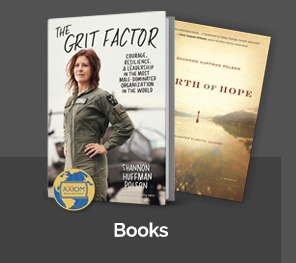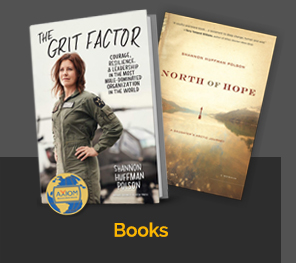Trauma. There is a lot of excellent work around this idea from the last sixty years in particular, and new conversations light of the challenges many are experiencing or observing in our world today. The American Psychological Association defines trauma as “an emotional response to a terrible event like an accident, crime, or natural disaster. Reactions such as shock and denial are typical.” The sociology journal Frontiers reports that PTSD-like responses are observed across a breadth of countries in response to the pandemic and related or simultaneous stressors.
Not long ago I spoke with a colleague about the challenge of living overseas with a family, where the word “trauma” was used in some cases for the difficulties children can experience. This conversation, along with others of deep concern for the young people of our nation and our world, led to looking deeper into the idea of tactical ways to consider shoring up grit and resilience, positive ways to address negative experiences.
It turns out there is a name for these difficult experiences and ways to begin to address them (if you have a serious problem, please consult a professional). As I read through, it occurred to me that these are proper areas of focus for us all — not only at home but, at times, in any organizational setting.
PCEs: PCEs are Positive Childhood Experiences. These PCEs help to counteract childhood stressors and trauma and the prevalence of adverse childhood experiences— known as ACE. High scores on ACE predict greater psychological as well as physical problems. (one reference for this is here.)
It's critical to find ways to address ACE with PCE (are you keeping up with this alphabet?) PCE is not a general term, but rather refers specifically to tactical measures any family might focus on:

1. The first PCE-- a good reminder for all of us as parents:
The child's feeling that when they express difficult emotions, they are heard and validated by their parents. For parents, this means sitting down with private and quiet time with each child separately. For mangers, this means connecting with your people, 1:1— and employing those skills from chapter 4 of The Grit Factor.
2. The second PCE: Feeling physically safe in the home
For most of us (I hope) this is something we can do, but it's a helpful reminder to look out for children who may not have this security.
3. Third PCE: Feeling their parents stand by them during difficult times and that they are a priority
Another good prompt as a tactical requirement, as it is so easy to be busy with other requirements kids may not feel valued. The positive parenting "special time" helps here. In an organization, this means standing alongside — and standing up for when necessary— your people. In the military, I remember being taught that a leader doesn’t let anyone touch their people— if someone does something wrong, the leader bears the brunt of the impact, and then works with their people off-line, in a way that is more like a coach. Are you standing by and standing up for your people, and for those relationships that mean the most to you?
4. Feeling supported by a peer group.
Related to another, "feeling a sense of belonging in high school/secondary school"
This is really tough sometimes in junior high school-- and other age groups-- sports teams help here, as well as other group activities. it can also be hard in a new work environment, or coming in to a new position. By now, you’re likely familiar with the nearly 80 year Grant Study at Harvard which studied the most important factors of a good life— more than good genes of good nutrition, quality relationships come out on top. Help your children learn how to form relationships. Prioritize this in your family and in your own life.
5. Feeling a sense of belonging within a larger, multigenerational group
The church or the house of worship used to fill this role (for those of us for whom it still does, we're very fortunate). Others may need to work to create this community environment. Volunteering in groups can be a great start. Thoughtfully connecting with and forming relationships with neighbors is another approach— and reaching out to see how and where you can be of assistance. If your children are grown, see if you can help out with a young family— bring dinner over, and spend time with them. At your company, ensure opportunities to gather and learn from each other at all stages of experience and life.
6. Having routines and traditions to look forward to.
This one can be so much fun for families to recognize and even create their own traditions. In the workplace, this is possible too. What are the traditions (and routines) you rely on and identify with? Consider the AppleTV spectacular: Ted Lasso. Ted and his players reach up and hit the BELIEVE sign. For a family, perhaps it’s holding dinner time sacrosanct— this is an important thing for our family. On the anniversary of my father’s death and on is birthday, we light a special candle. On Sundays we go to church. This structure, routine, and connection to ritual and traditions a part of our human experience, and grounds us when other aspects of life feel out of control.
This is a part of Chapter 5 in The Grit Factor— p. 128, if you have your copy nearby.
7. Having two non-parent adult relationships who take a genuine interest in them
This one really resonated with us, especially living overseas with our kids. How can you cultivate additional relationships that are valuable for your children? Again, in an intergenerational setting, you will have more opportunities for this kind of a connection, though it’s also true that a student may find this connection with a particular teacher or coach at school or in sports. music or other activities as well. Meanwhile, how can you BE that adult who takes a sincere interest in a child, too?
I’d love to know what you thought about this post today, how it might help you, your family and your organization, and what specific steps you will take TODAY to help this bolster our relationships and our community.
With all my best, and to YOUR grit,
Shannon
PS: the other PCE I personally recommend? Get outside as much as possible. And read a good book— make sure you’re reading poetry in the midst of all you read for work, too.
PSS: Are we connected yet on Instagram, LinkedIn and Twitter? I’d love to see you other there!









